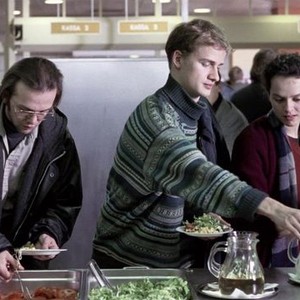
The film is 71 different scenes that highlight small tidbits of the lives a seemingly random collection of people. 71 Fragments of a Chronology of Chance is an experimental film from visionary mastermind Michael Haneke.
#71 fragments of a chronology of chance movie#
If you're looking for something that you can watch with half a brain then avoid this movie like the plague. If you're looking for something easy and simple then steer clear of this movie. If you're looking for something happy, uplifting, and fun then steer clear of this movie. That is how I will remember this film, and how many times in real life is "why" the only question never answered? I will never forget because I never knew why (the incident at the end). "71 Fragmente einer Chronologie des Zufalls" is quite an achievement in filmmaking, and it is a film that will stick with me forever. Too many directors try too hard to give characters sympathetic traits, and you just lose interest in the story. Like fellow German-speaking directors Herzog and Fassbinder, Haneke seems a bit misanthropic in his characteristics. I never seem to like Haneke's characters, and that is a good thing really. Speak to each other and solve everything, seems to be Haneke's advice, without him really giving it. And his project seems to be to expose our lack of love and passion for each other, but most of all our lack of ability to tell it as it is. You cannot blame Haneke for not being a positive director, for he is the only filmmaker working today who can portray and observe his characters so coldly and so unpassionately.
#71 fragments of a chronology of chance full#
Rather, Haneke shows his characters in situations where they are tired, fed up, irritated or full of hate quite ordinary human emotions. I have never seen people make love in a film by Haneke, except for the masochistic and sad attempts in "La Pianiste". Because this is a thematic film, and it is a brilliant, stylish, ice-cold half-misanthropic study of people's lack of ability to perform tender acts with each other. This is a very economical style of filmmaking, and it certainly demands a lot of the viewers, because you only get the information you really need to connect this episode thematically to the others. Each episode is divided by a second's black screen, and Haneke often interrupts and ends the episode in the middle of a person's sentence.

It features rather short episodes, and within each episode there is scarcely editing or camera movement. In this film Haneke developed a style that is very reminiscient of his 2000 film "Code Inconnu". This film is the last in Michael Haneke's trilogy about alienation called "Vergletscherung die Gefühle", and it ends in a violent climax which is a result of the previous fragments that Haneke presents to us.


 0 kommentar(er)
0 kommentar(er)
